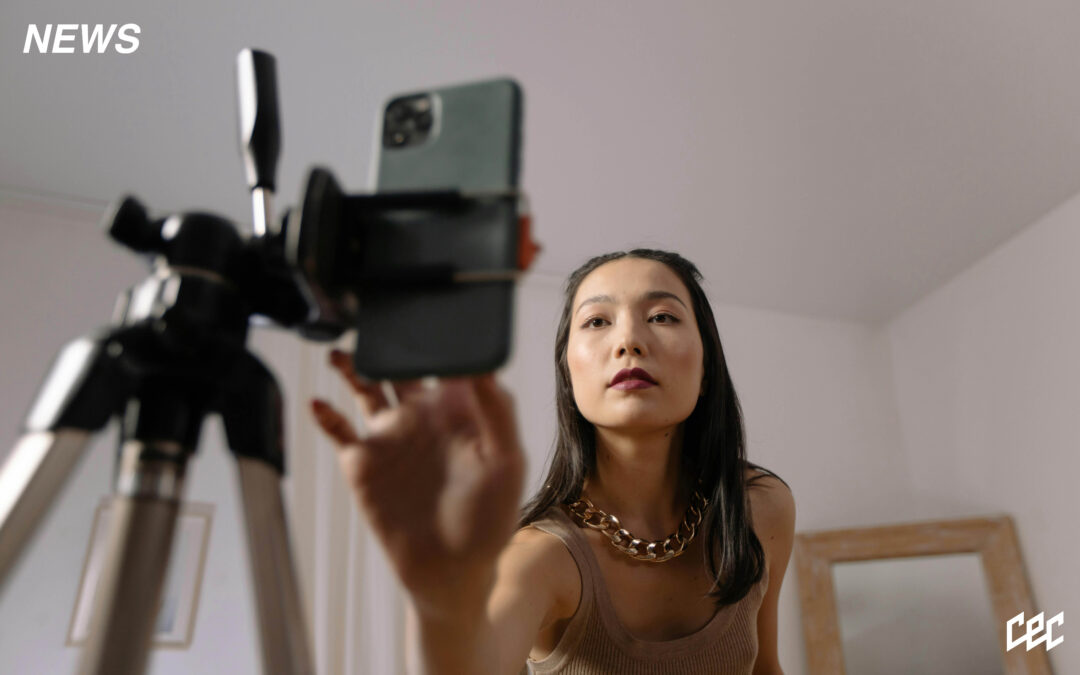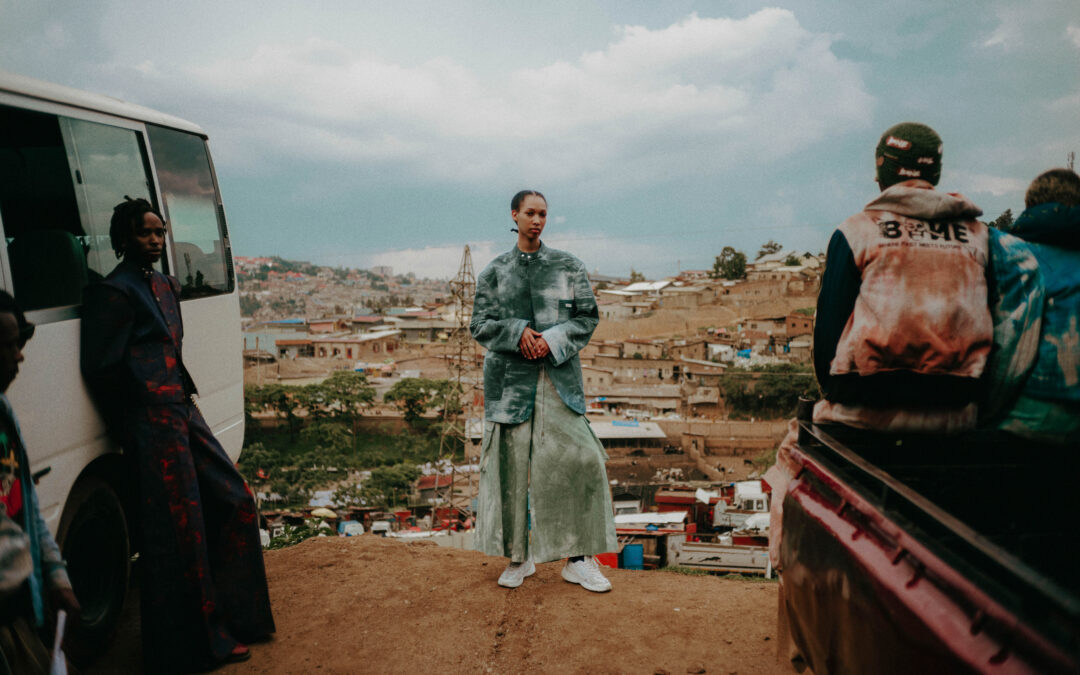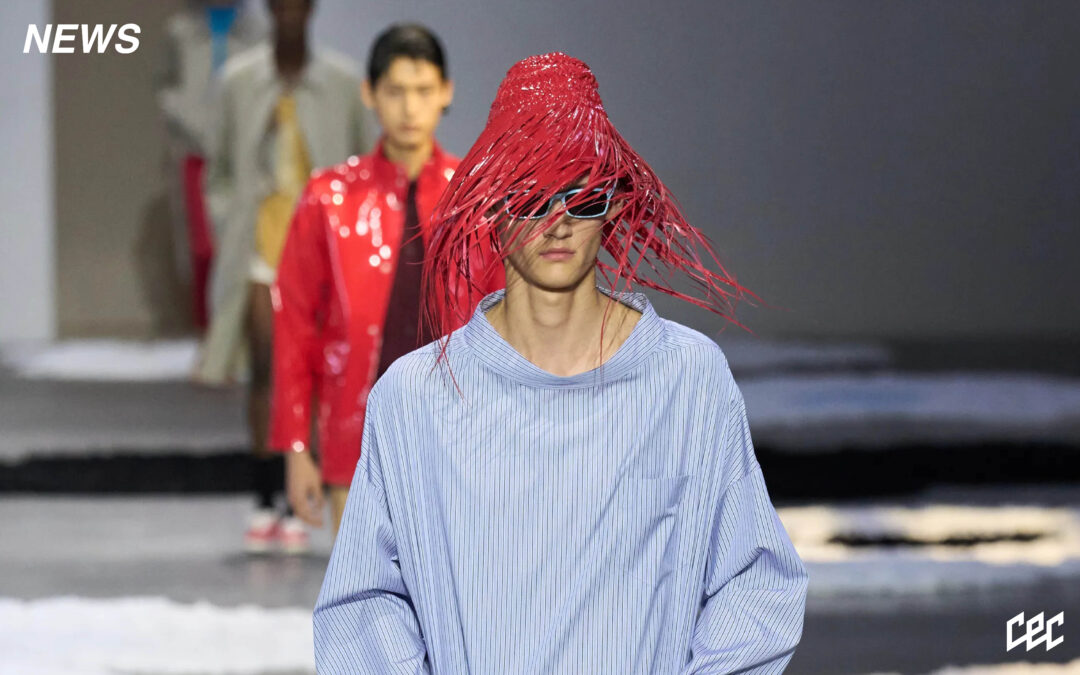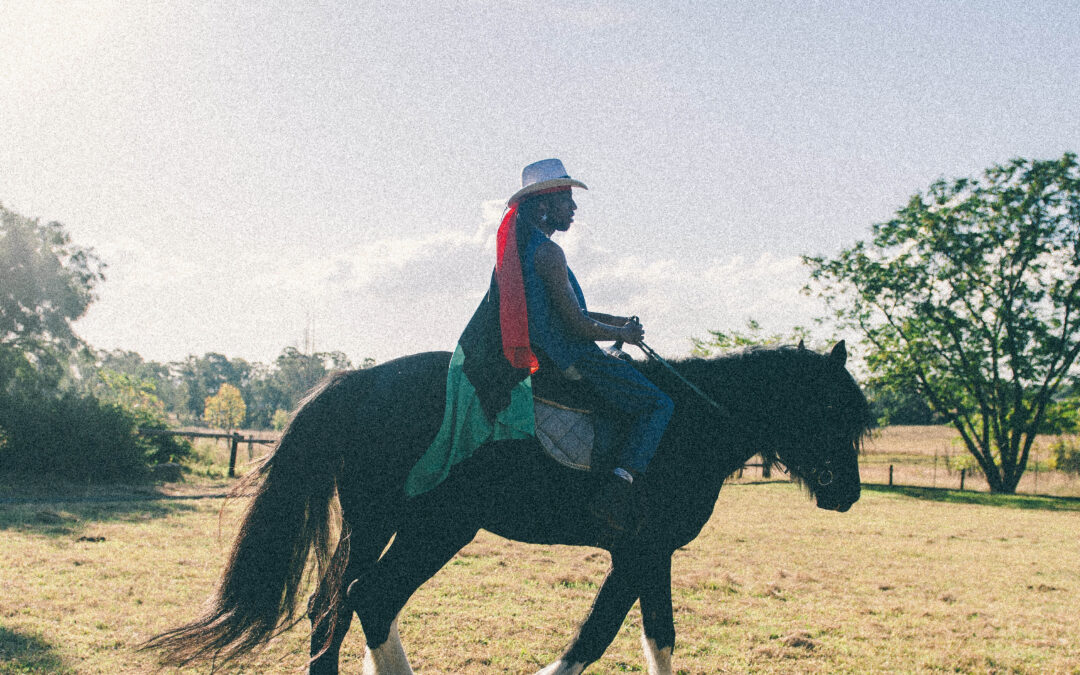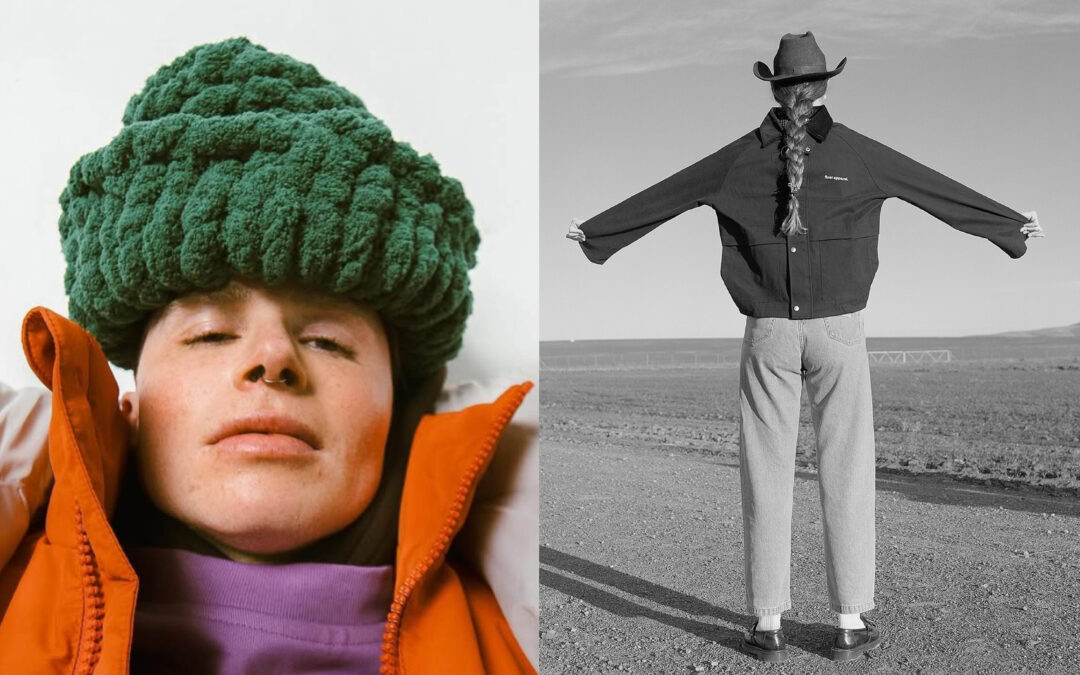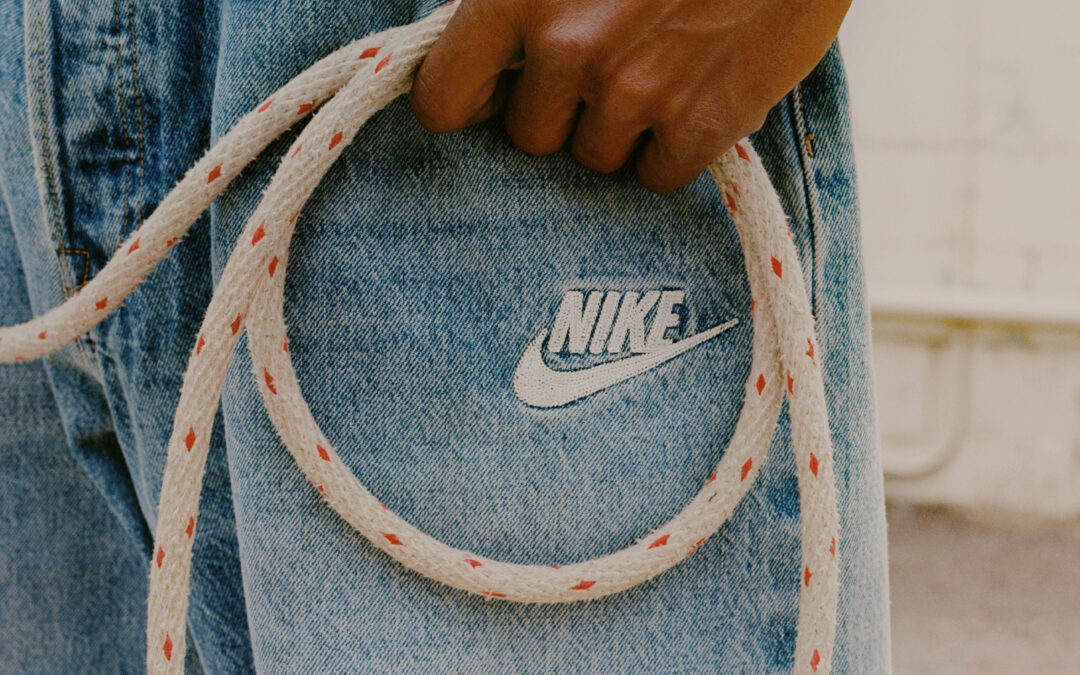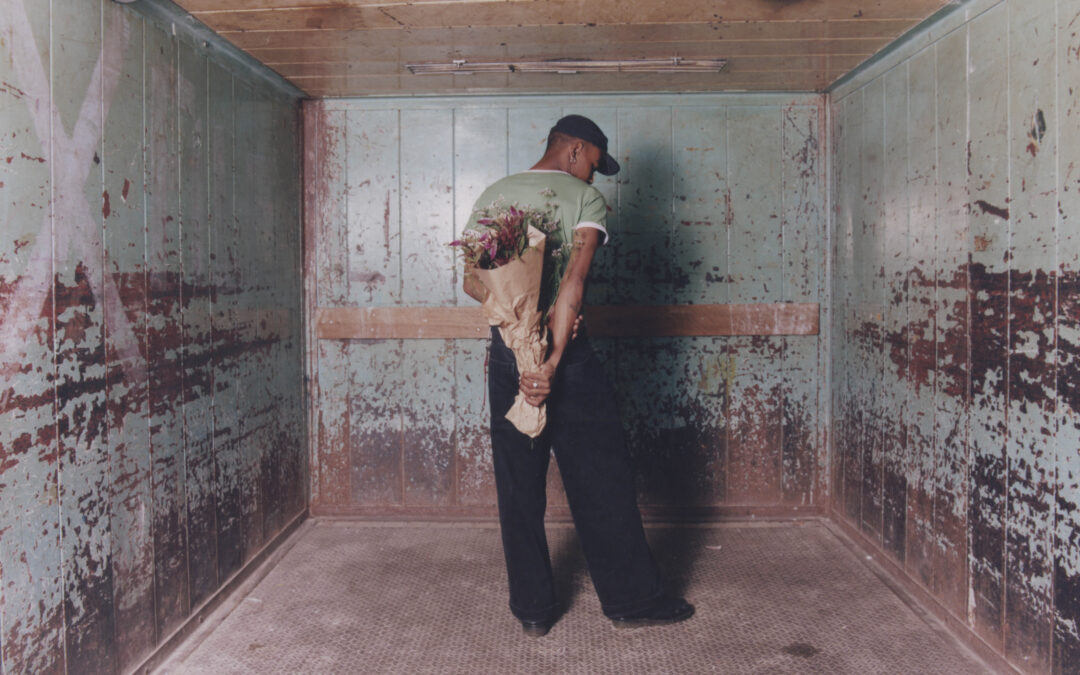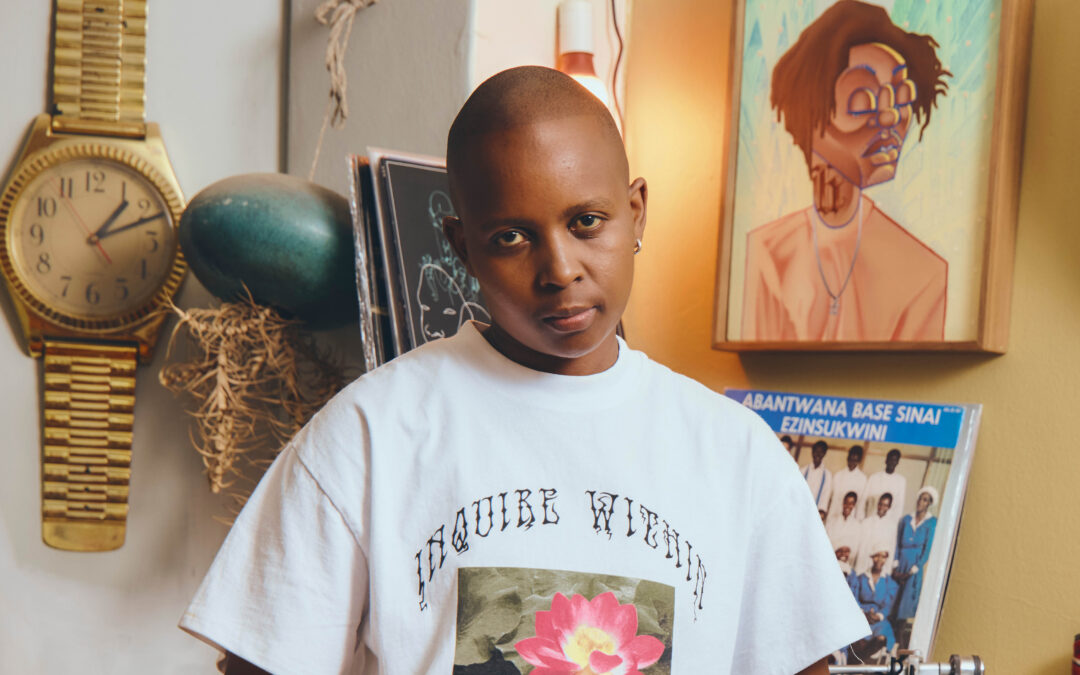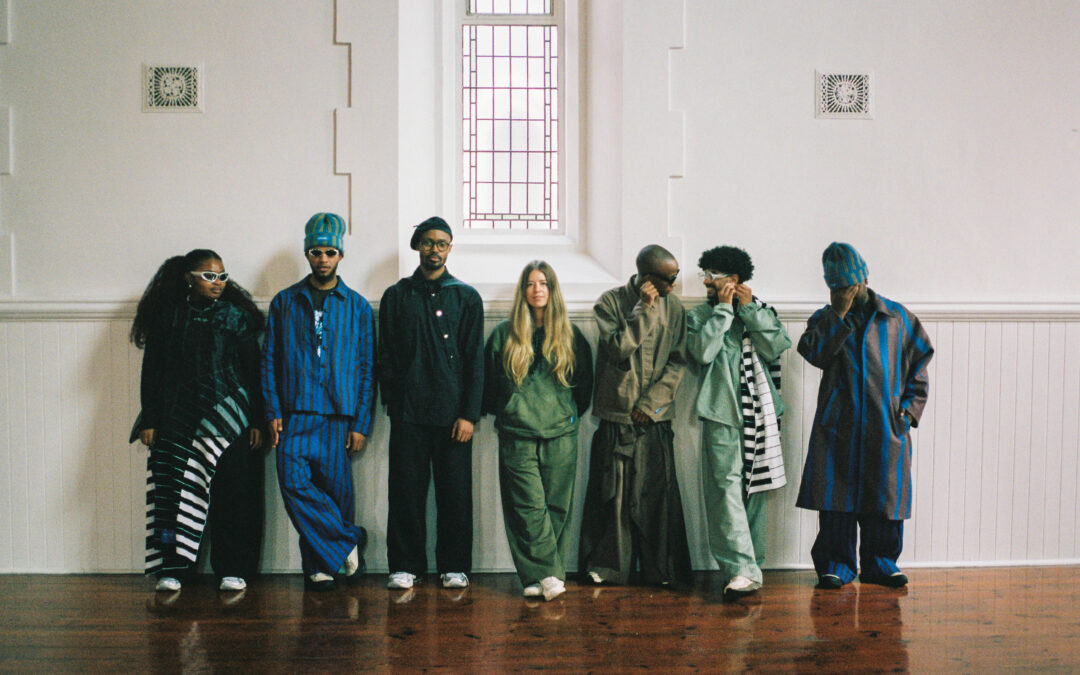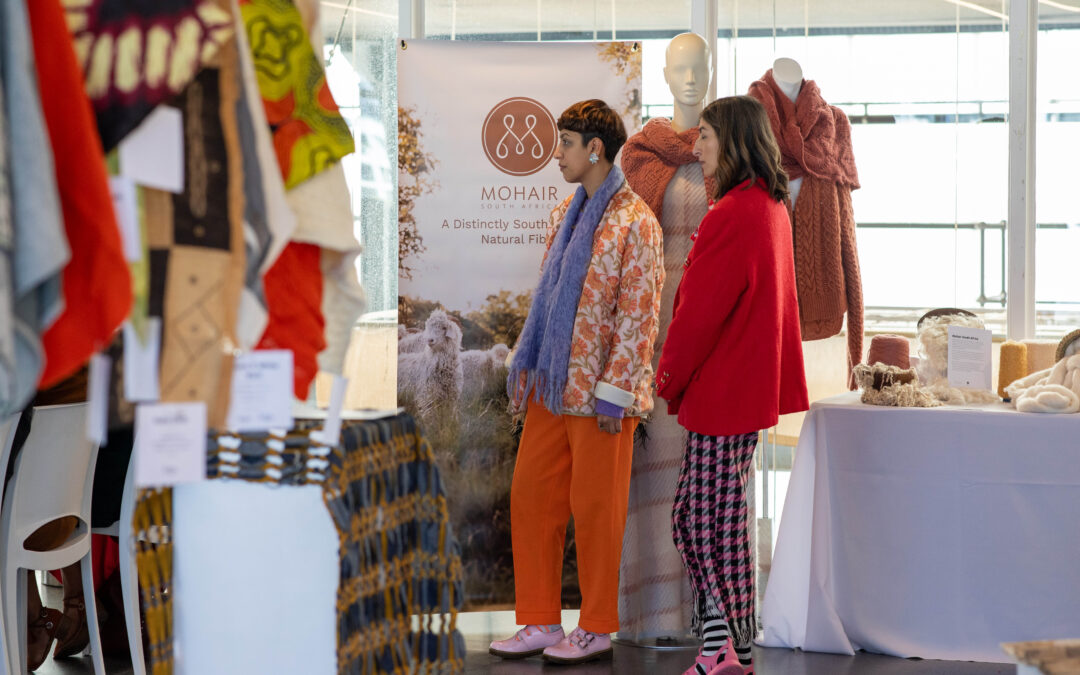Running a brand is an endurance test. For Artclub and Friends founder, Robyn Keyser, this has meant being measured against all manners of experience, learning, adaptation – systems and operations – quality control, design-think and refining a point of view, through the lens of the label’s signature array of products and offerings. For the last seven years, Artclub and Friends has been unrelenting in its rise as one of South Africa’s most important fashion brands – in addition to this, is its role as a community network. Artclub has a cult-like following of fans, customers and artists for whom the brand stands as a symbol of creative triumph – and the hopes and potential of a local fashion scene to be proud of. Robyn is a mentor to many and a titan of industry and in the most pared back, behind-the-scenes way.
The late, great Riky Rick was an ardent supporter of Robyn’s work – putting her on, back in 2019, when the label as Robyn describes ‘was a small, passionate idea and a stand at the Biscuit Mill’ – Riky would go onto be a close friend of the label and inspire a culture of local, fashion-centric energy within South Africa. When Tanya Slater, Artclub’s ‘conductor’ (whose strength is orchestration and minute details that have seen the label go from strength – Tanya ‘keeps the ship sailing’, Robyn notes in our conversation) joined the label in 2019, everything changed. For a founder and creative director, going it alone is incredibly challenging And Robyn will be the first to tell you that Artclub’s endurance and its success is precisely because of the team behind it, who along with Robyn and Tanya, is comprised by Galima Alexander (Garment Technologist and Quality Controller), Jess Speller (Studio and Stock Manager), Abigal Chamaita (Watershed Store Manager) and Chelsea Mutizira (Watershed Store Sales Assistant).
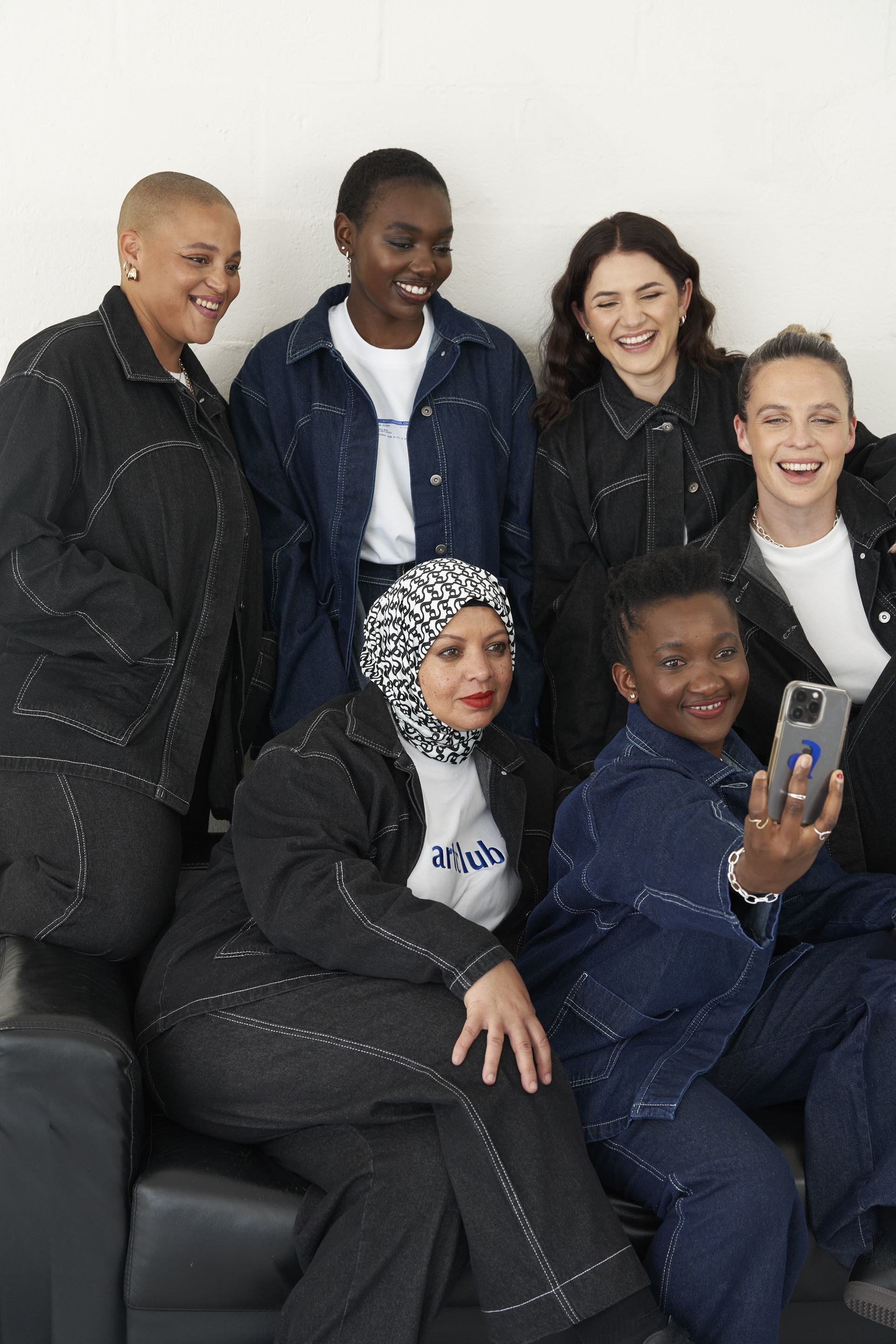
The team behind Artclub and Friends, captured by Anke Loots
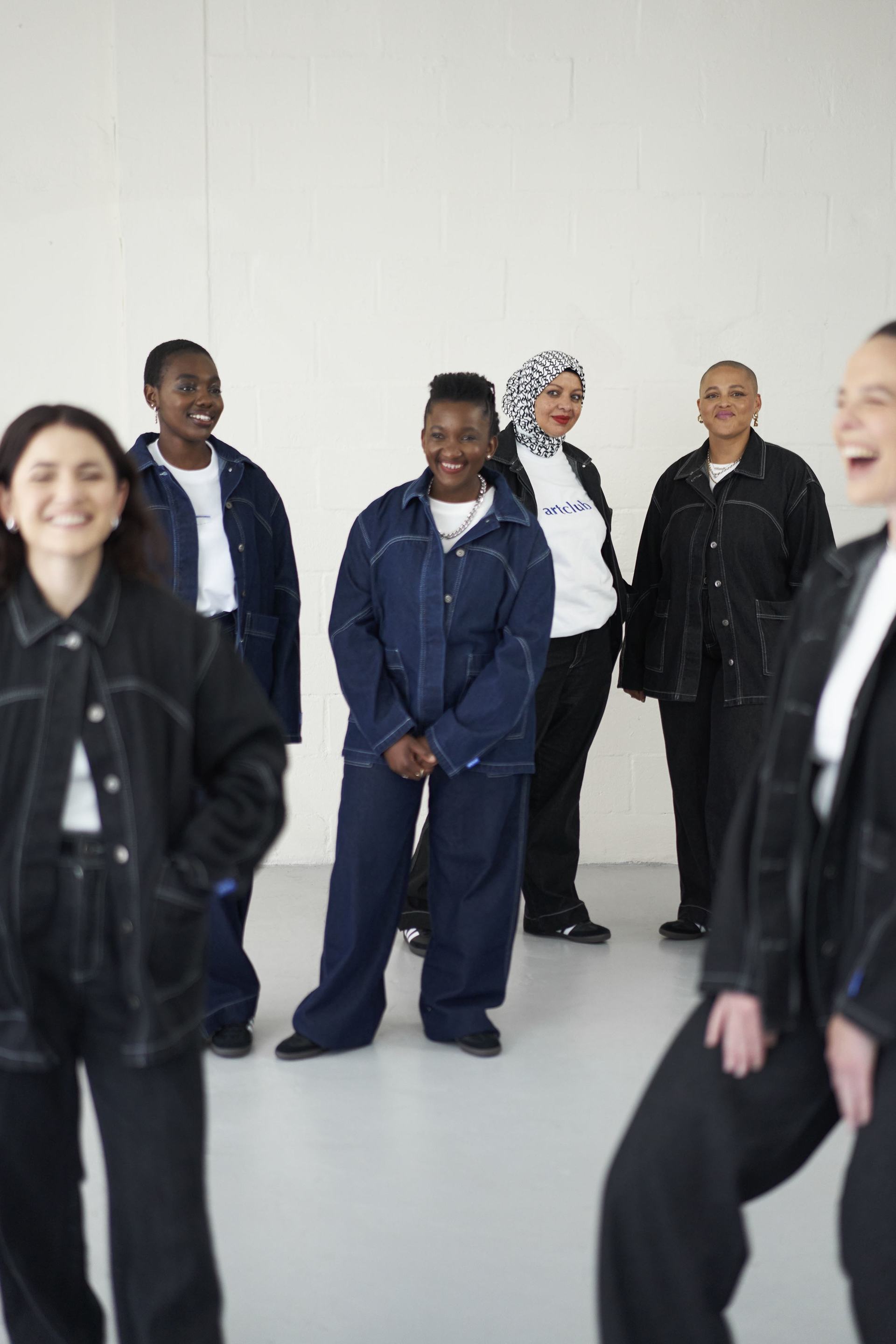
On Artclub’s earliest lore, Robyn says; “Technically, Artclub was launched in November, 2016. It survived for about three months before I ran out of money and had to go back to the film industry. I laugh about it now, but that was a big heartbreak – it was funded from bartending and styling money. I totally underestimated how expensive it was to produce or how long it took to actually design things.” The vision was to create local clothing that was ‘made by artists, for artists’. Taking her cue from the unity inherent to ‘uniforms’ as a dress code, Robyn hadn’t foreseen the difficulty in building a small-business from the ground up, at 22 years old. The boldness of youth has gone onto be one of Robyn’s key assets as a designer – nobody can dress youth, like young people can. This remains true for the brand whose design DNA is immediately recognisable – clean, deliberate and incredibly well-made. Robyn reflects on the early days, “in July 2018 – after working on it part time – I got my first studio space. A year later, Tee (Tanya) joined. Artclub exclusively existed as a Biscuit Mill stand and an online store – it was very slow. At the time, people loved the idea of local brands but they weren’t really buying local. We had more ‘fan’ style engagement online then, than actual customers. I personally believe our conversion from an admirer of the brand to customers, kicked off during the pandemic.”
Initially, one might think of Tanya’s role as being Robyn’s right-hand in the brand, but in our conversation, it is quickly clear to me that the two of them are more akin to a Yin-Yang, two-halves of a whole than anything else. In fact, the structure of Artclub’s team of women is far less top-down than it is a circle of people with incisive skills, each with a profound role to contribute. Robyn describes her and Tanya’s relationship, “Artclub totally changed when Tee joined, for many reasons. Firstly, we doubled our work-power! Also, I was able to have a soundboard and someone that knew me – and had a fresher view of the brand, from the outside looking in. Artclub wouldn’t be where it is today if Tee hadn’t taken a huge leap of faith to join. When it’s been hard, to have one another is invaluable. People say ‘don’t work with your friends’ – but when it works, it’s unmatched.”
One of the greatest fashion fallacies is that it’s easy to make clothing. You just design, choose fabrics and have your pieces made: right? With the dwindling of South Africa’s textile and garment industry in the last two decades; though this a story for another day, Claire Bisseker’s report from 2009, ‘Hanging By a Thread’, provides a clearer picture as to the intersection between globalisation, job-loss and lack of investment. As Tanya says, “I didn’t study fashion at all so when I came in, I was like – ‘oh, t-shirts, easy!’. It’s absolutely not. With every single production run that we do, we learn something. It teaches us a lot of patience and a lot of resilience.”
It is precisely this greater environmental context rife with challenge that makes Artclub’s success a triumph beyond simply their own endurance. The brand represents an early, ableith small, wave of young designers and entrepreneurs determined to redirect the course of local fashion – to this degree, Robyn is Mother. Young brand owners who know Artclub will tell you that Robyn has hacked many of the cheat codes to make what is happening now in South African fashion possible. Regarding the context in which Artclub was built, Robyn explains, “I’ve spoken to a few brands of our size and positioning in other parts of the world and we have compared notes. There are things that we just don’t have here – like textile hubs or incubators. I spoke to a designer from Italy and they were telling me about the funding options, the mentors – the sharing of manufacturing leads. The ability to go from an idea to being in-store, and it being quality and affordable, is nearly impossible in South Africa. Usually, something has to give. I think we are seeing a shift, though, from so many brands. We are totally in our infancy – Artclub as a brand – but more than that, as a local design industry.” In a truly South African way, this mood of hope laden with challenge often proves to be a kind of fuel for the country’s creatives.
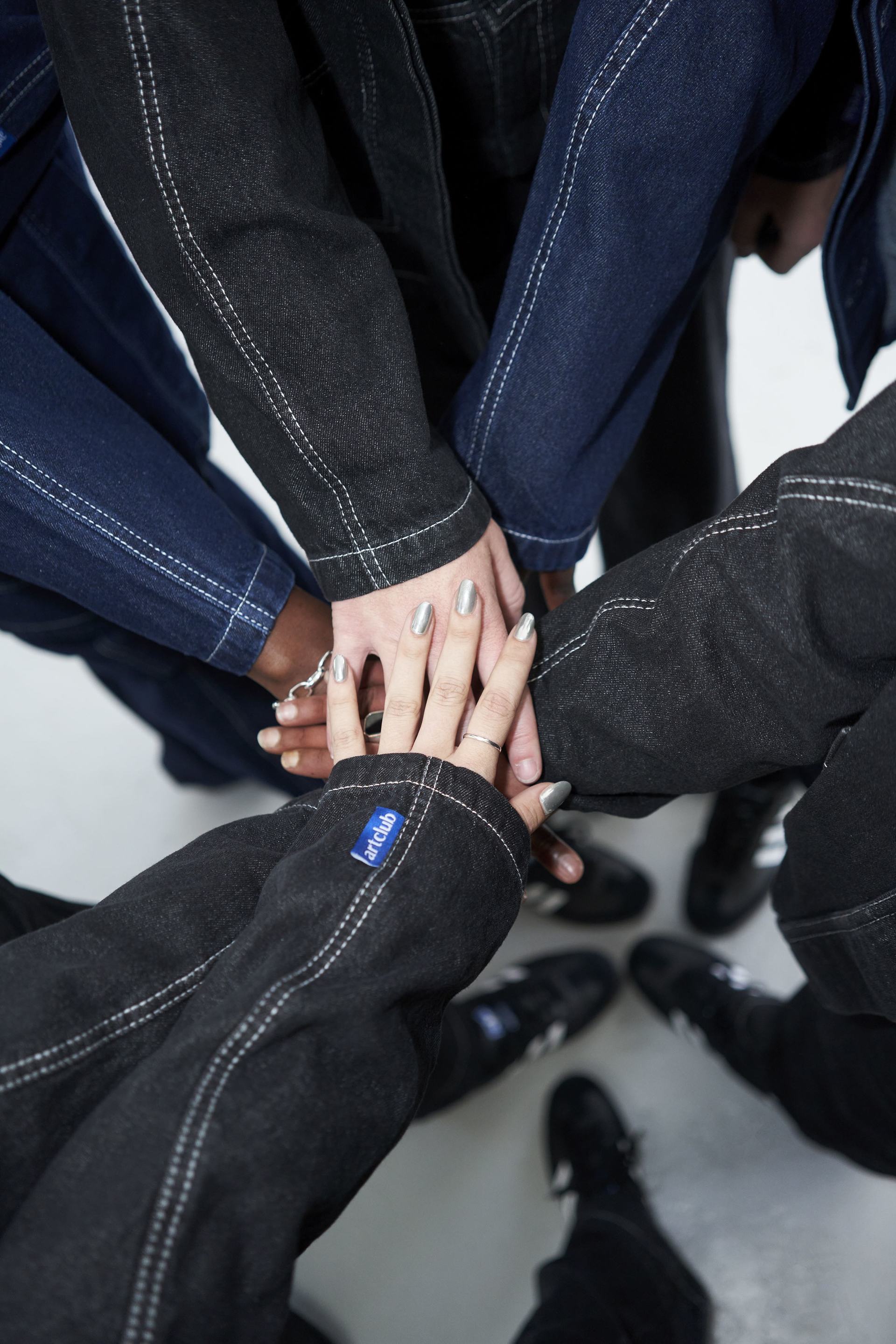
The team behind Artclub and Friends, captured by Anke Loots
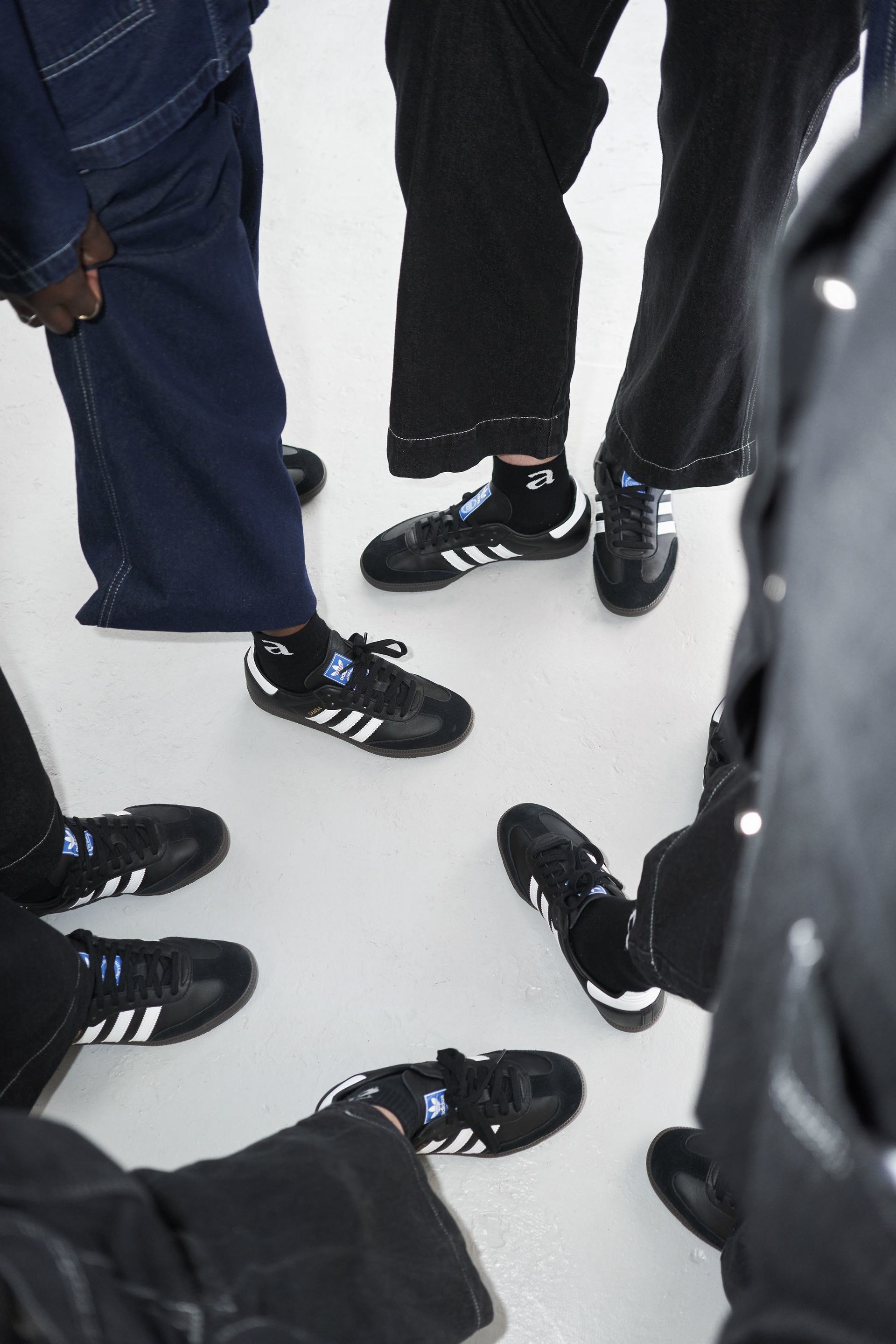
As Robyn explains, there is a shared spirit among brand-owners in South Africa, “Ayo Ojo – the fashion journalist AKA Fashion Roadman– was in Cape Town and he said that he was so taken by how everyone put everyone else on – he was going to brands to find out about what they do and all they wanted to do was tell him about other brands! There is this awareness now that if I win, you win – that if someone is buying locally from us, then they’re opening to buying locally from other brands. There is this co-operative flow with the fashion space now.”
The perennial thread throughout Artclub’s growth lies in its central philosophy. Like a kind of living, breathing manifesto (one that is always changing too, according to Robyn) – is this notion of ‘by artists, for artists’. I ask Robyn of the hindsight around her initial product offering: creating the perfect, locally made T-shirts with prints by collaborating artists – now, Artclub is fully-fledged clothing brands; as Robyn says, “when you start a business when you’re 22 or 23 – you don’t really have a business plan. I had a gut feeling and the name came to me, along with this very blurry idea of what it might look like. I knew I was going to bomb working in a corporate job. All I knew was that I wanted to work with artists. This year, we’ve come to realise what Artclub is : a vessel to amplify artists. We learn these things as we go.” Artclub has never done any influencer-marketing or paid people to wear their pieces; for Robyn and Tanya, their belief is that organic growth through relationships is the Artclub pathway to community-building.
Now, the ‘term’ artist has become more enriched as Artclub and Friends has grown; “The people that are “making” our clothes are artists. I’m actually more of a product developer than a designer. I am so happy to let go of any need to be a designer; I’m so into product and tactile things and working with the artisans around us. Galima, our garment technologist, has taught us so much about how to make good clothes. Our first sweaters? She said, ‘are these in store? You need to bring them all back!’ ” muses Robyn. I ask how she would now describe what they do; “I used to use the word streetwear to describe what we do – mostly because it was how other people described us. The more I’ve come to understand the term ‘streetwear’ and it’s quite specific history, the more I would liken what we do to a mix of contemporary apparel and ready-to-wear – with definite elements of streetwear.”
This conversation would be amiss if we didn’t broach the subject of being a woman and a brand-owner. I ask Robyn and Tanya what their experience has been so far, to which Robyn explains that “A lot of the artists we are working with are women and I have only hired women so far, which is not a hard-rule that I might always stick to – it’s just worked out that way and so far, it’s been amazing. I think we are getting to a point where women aren’t waiting to be offered things, we are taking up space. Imposter syndrome is a thing and I think it’s very prevalent among women. I don’t have a single woman in my family who has ever attempted anything close to something like this.” Among women, power is generally expressed through a circle – this goes back to Robyn and Tanya’s duo-ship and how the two of them lead the Artclub and Friends team.
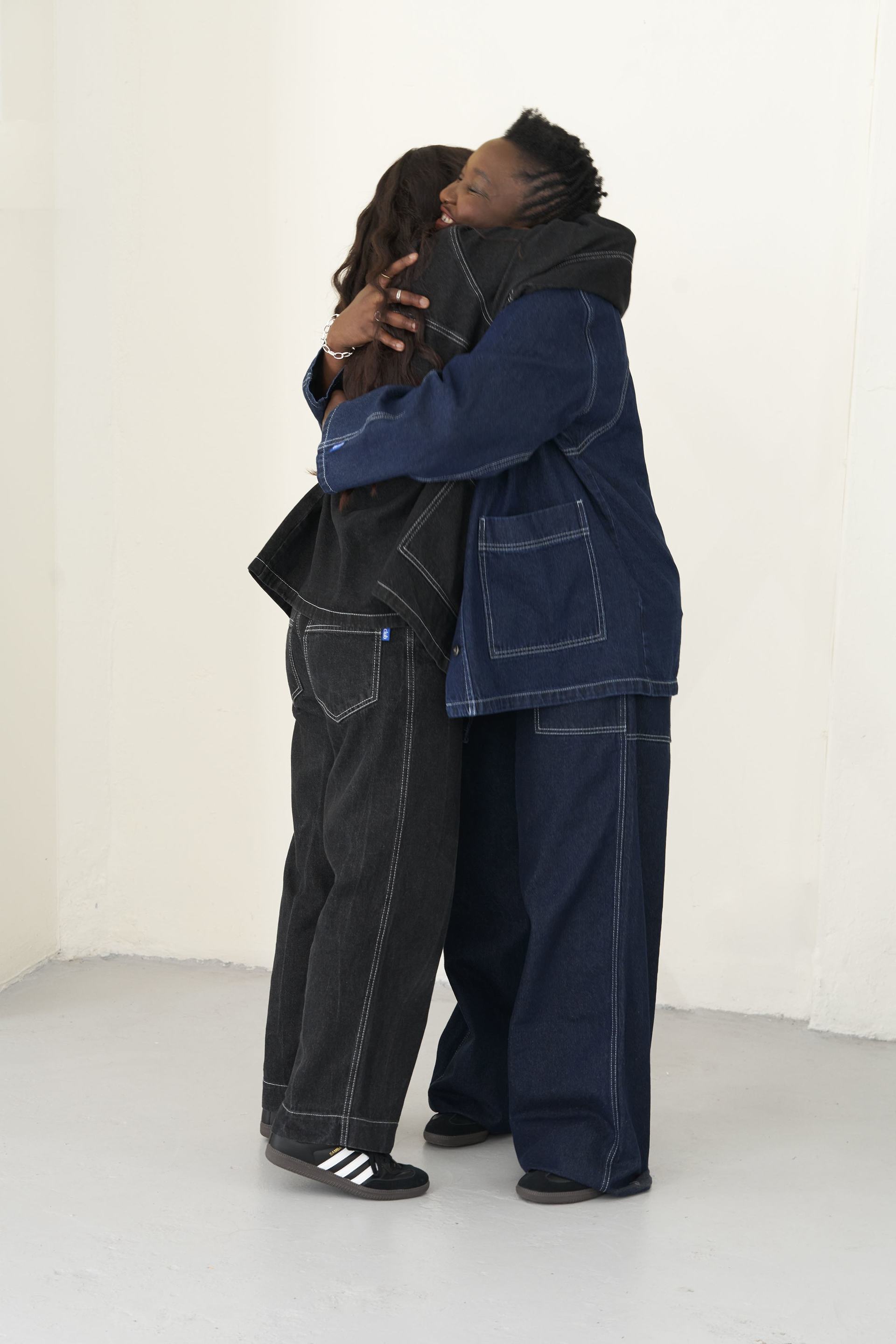
The team behind Artclub and Friends, captured by Anke Loots
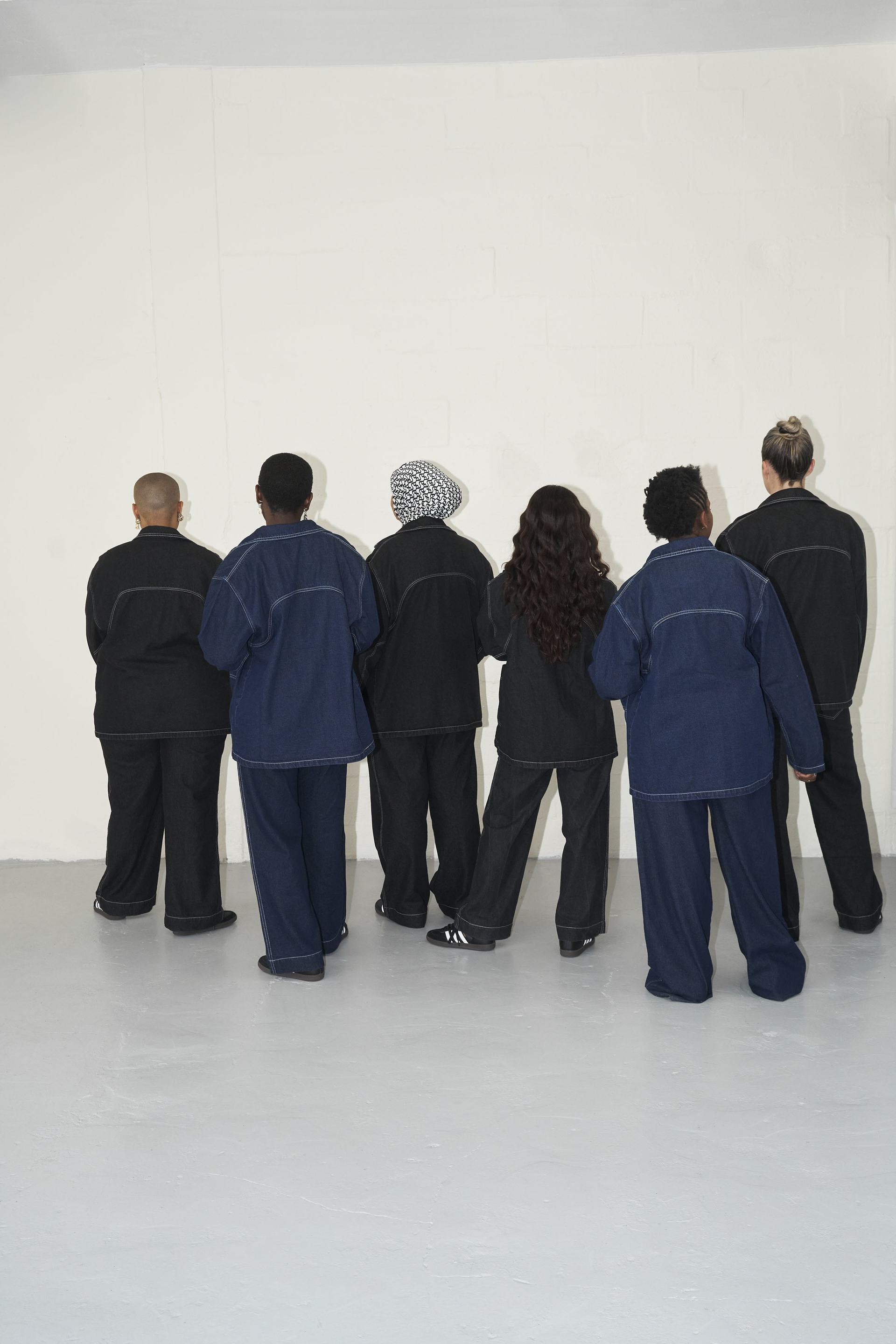
Robyn professes that if we looked in her wardrobe, we would never know that she worked in fashion. This is perhaps the reason that the sense of ‘uniformity’ within Artclub’s design philosophy feels so authentic; Robyn would rather people bought less overall and bought more locally – without compromising on quality. Robyn explains that “a lot of my designs are informed by my own feelings around clothing. I have realised that I am much more of a product developer than a designer; I love product and letting go of the need to prove myself as a designer has been really great. In a South African context, we have a huge focus on sentimentally – designing for our customers to have something special that will last for a long time, without it being hugely expensive.” Critical to Artclub’s presence is their muted palette – with pops of the iconic cobalt blue synonymous to the brand – although, Robyn mentions that we can expect more colour ahead. Alongside this, is a focus on construction that makes the silhouettes coming out of Artclub, a jewel in the crown of South African fashion. Robyn reminds me of something I noted sometime ago: local fashion brands in South Africa are inherently sustainable, for their small-scale and commitment to the social and artistic enhancement of customers, manufacturers and sellers.
It is said that life occurs in seven year cycles. In astrology, every seven years, we undergo a profound shift in our reality and thinking. It is no wonder, then, that Robyn responds to my question for their vision ahead with the idea that they are entering a new phase; despite Artcluband Friends being in itself-described infancy, they have also paid many dues. Ahead, is the possibility of what more is in store. Robyn’s last words express a promise on the other side of the proverbial endurance test, “we are finally in a place where our head is above water – we have this amazing privilege looking forward, as we ask ourselves – who could we be? What do we want to focus on, what does our next phase of having a team look like? Where do we want to travel? I can’t believe we are finally getting to think in this way, but it’s happening.”
Visit Artclub and Friends HERE
All imagery by Anke Loots
Written by: Holly Beaton


